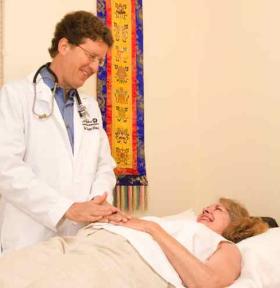 The death toll from three of the UK’s most common cancers has dropped to its lowest level in almost 40 years, according to new figures released by Cancer Research UK this month.
The death toll from three of the UK’s most common cancers has dropped to its lowest level in almost 40 years, according to new figures released by Cancer Research UK this month.
Mortality rates for breast, bowel, and male lung cancer are at their lowest since 1971.
The latest figures from 2007 showed breast cancer deaths plummeting 36 percent since their peak in 1989.
From a high in 1992, bowel cancer deaths dropped 31 percent.
As more people have given up smoking, the number of men dying each year from lung cancer since 1979 has dropped dramatically to 19,637 deaths in 2007 – an improvement in mortality rates of 53 percent.
Although more people are getting cancer because the population is living longer, Cancer Research UK believes that fewer are dying from the disease thanks to increased screening and new and better treatments.
Harpal Kumar, chief executive of Cancer Research UK, said: “Years of research are behind the dramatic progress being made in the fight against Britain’s common cancers. Survival rates have doubled in the last thirty years and the work of Cancer Research UK has been at the heart of that progress.
“Our research is behind 19 of the top 20 drugs used to treat cancer patients worldwide today. Our work has underpinned the huge progress we are now seeing in preventing more deaths from lung cancer. And our progress over decades has helped to develop radiotherapy as a major form of treatment for half of all cancer patients.
Cancer Research UK funded large trials that proved the benefits of tamoxifen for breast cancer patients and other trials have shown how to prevent the disease in high risk post-menopausal women. In 1995, the charity showed that two X-rays were better than one in detecting more breast cancers and reducing recall rates. This contributed to a widespread change in clinical practice with two-view mammography now used by all the national screening centers.
“But research is expensive and – because we rely completely on donations from the public – we can only continue this vital work with people’s support,” said the charity.
(Learn more at Cancer Research UK)
Photo courtesy of Dr Eliaz, treating cancer patients



















